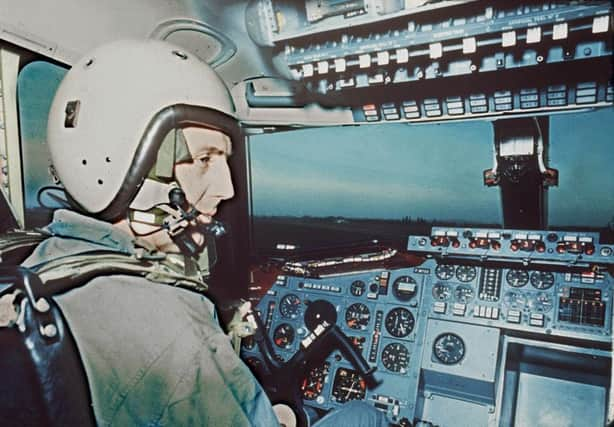Obituary: André Turcat, pilot and politician


André Turcat was a French test pilot who commanded the four-man crew of Concorde 001’s inaugural test flight, and became the first to break the sound barrier a few weeks later, as he piloted the iconic supersonic jet to Mach II, twice the speed of sound.
In a career spanning the rise and fall of the famous Anglo-French SST, as one of two senior pilots in charge of the Concorde flight test programme, the other being his British counterpart Brian Trubshaw, Turcat played a pivotal part in this most ambitious Anglo-French project.
Advertisement
Hide AdAdvertisement
Hide AdThe world’s media captured the moment Turcat piloted the futuristic 001 prototype out of its hangar and taxied along the Toulouse runway on 2 March 1969. The historic 27-minute test flight was uneventful, with both the jet’s distinctive drooping nose and landing gear remaining down throughout.
As Concorde took off, Raymond Baxter, broadcasting for the BBC live from the airfield, exclaimed: “She flies. Concorde flies at last, driving into a sunlit sky… building the speed up to about 220-230 knots… Now for the first time, André Turcatgets the feel of this great aeroplane in his hands.”
Later, Turcat predicted it would take years before passengers would be able to fly at supersonic speeds.
This was borne out with Concorde only being certified in late 1975 after years of testing, dramatic cost overruns and dwindling customer interest.
His enthusiasm for the aircraft never diminished and he staunchly defended it even after an Air France Concorde bound for New York crashed on 25 July 2000, while taking off from Paris’ Charles de Gaulle airport, killing 113 people.
This sounded the death knell for commercial supersonic travel.
In March 1976, after over 1,000 hours on Concorde flight simulators, 740 hours flying Concorde and 6,500 hours in total on 110 different aircraft types, he took early retirement, aged 54. Scheduled Concorde flights began a few months earlier in January. Turcat never flew another aircraft again except as a passenger.
Born in Marseille in 1921, André Turcat came from the family of one of the France’s first car manufacturers (Turcat-Méry). In 1942, he graduated from the prestigious École Polytechnique in Paris, the most selective French Grande École, although, his grades limited his options upon leaving and he “accidentally” opted for a career in the military, joining the Free French Air Force during the Second World War; he trained as a pilot and obtained his wings in 1947.
Advertisement
Hide AdAdvertisement
Hide AdSoon after, he earned a transfer to EPNER, France’s test pilot school then took over the test programme for one of the world’s first ramjet powered aircraft, the Nord 1500 Griffon. During testing, he took the Griffon to Mach 2.19, the first European to fly in excess of Mach 2.
Major Turcat then left the military and joined the state-owned aircraft manufacturer Sud Aviation just as it was embarking on the Concorde programme. He was appointed Concorde’s chief test pilot and Sud Aviation’s director of flight testing, appointments he held until 1976.
Turcat was deputy mayor of Toulouse from 1971 to 1977 and later became a member of the European Parliament from 1980 to 1981.
In 1983 he founded and was the first president of the Académie Nationale de l’Air et de l’Espace (National Air and Space Academy). In retirement, he returned to university and in 1990 he completed a PhD in Christian art.
He wrote a number of books, including Concorde essais et batailles (1977) and Pilote d’essais: Mémoires (2005).
In 2005 Turcat was appointed a Grand Officier of the Order of the Légion d’honneur. He was married with three children.